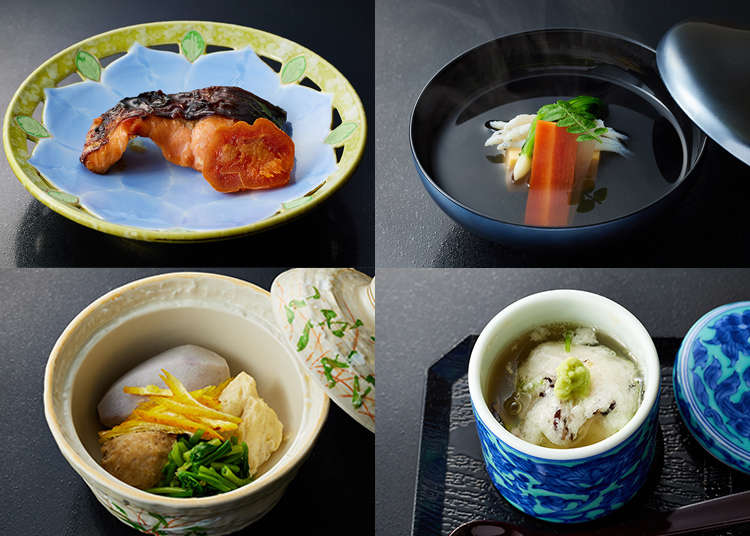
Fish pulled from the fertile seas, vegetables and meat cultivated in lush nature. Fukushima Prefecture is one of Japan's most fertile treasure troves of produce.
To share the magnificence of this area more widely, masters of Japanese cuisine, who have captured the hearts of gourmets around the world, gathered to create something special. They developed a kaiseki course menu designed to take advantage of the full potential of local ingredients from Fukushima, prepared using traditional Japanese cooking techniques from Kyoto and beyond.
*This article includes advertising content.
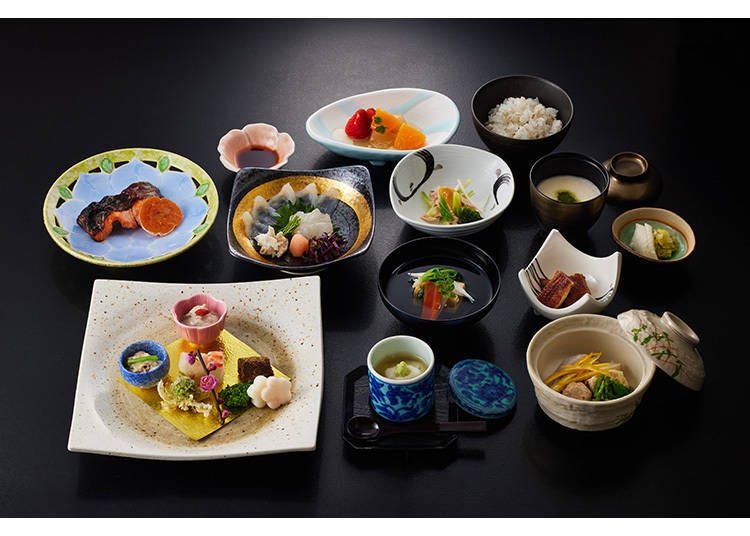
Powerful reactions to the kaiseki menu: "Like tasting an ocean teeming with flounder"
"Complex flavors." "Very sophisticated."
On February 18, 2024, a special event was held to unveil the kaiseki course meal at YUMORI ONSEN HOSTEL in the town of Tsuchiyu Onsen in Fukushima City. The roughly 100 participants who tried the course gave it rave reviews.
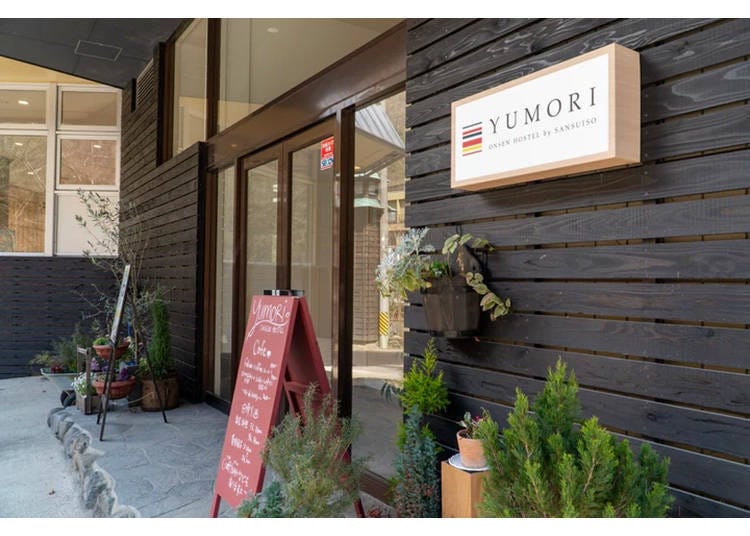
Tiger fugu (pufferfish) from Joban pickled in malted rice, steamed blackthroat seaperch, tsumire chicken meatballs made with poultry from the Aizu region, makigaki dried persimmon rolls made from Date City persimmons and yuzu citrus fruit from Yamatsuri Town, and more. All ten dishes in the course feature delectable local ingredients, the pride of Fukushima.
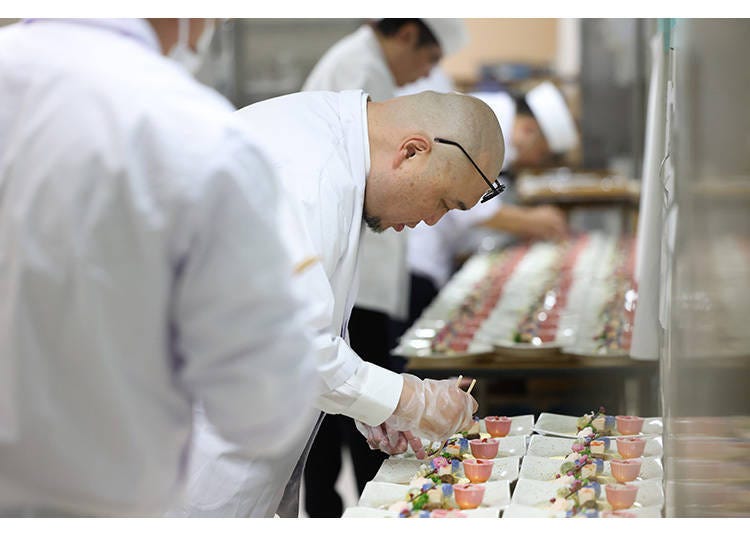
The event was attended by representatives of local fisheries, farms, tourism organizations, and companies, as well as government representatives. Shinako Tsuchiya, the Minister for Reconstruction, raved about the Fukutora (natural tiger fugu (pufferfish)), which Fukushima Prefecture has been promoting as a brand-name fish. "It has a rich taste that fills the whole mouth and a unique softness. It stood apart from any other fugu (pufferfish) I have ever eaten."
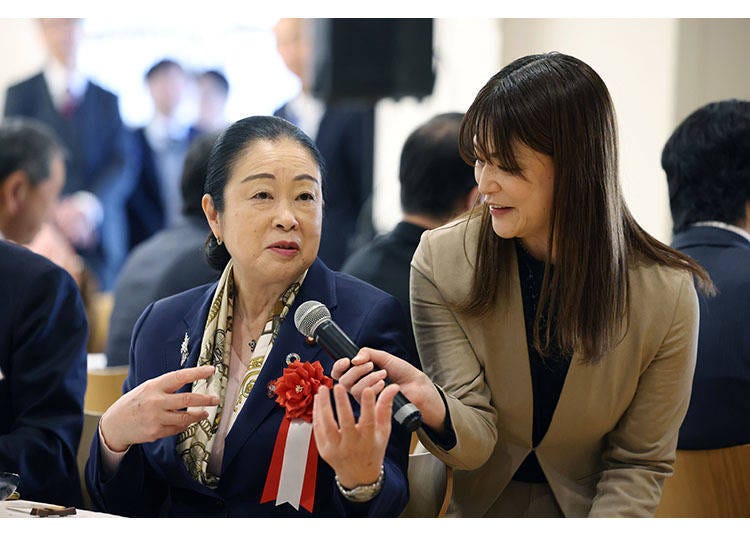
Masao Uchibori, the governor of Fukushima Prefecture, loved the kelp-wrapped flounder.
“It had a complex flavor with many layers. It was like tasting an ocean teeming with flounder. Truly incredible."
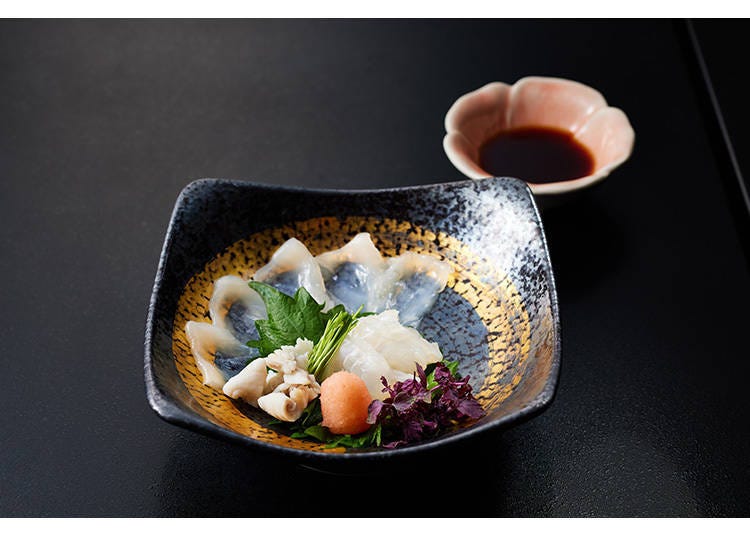
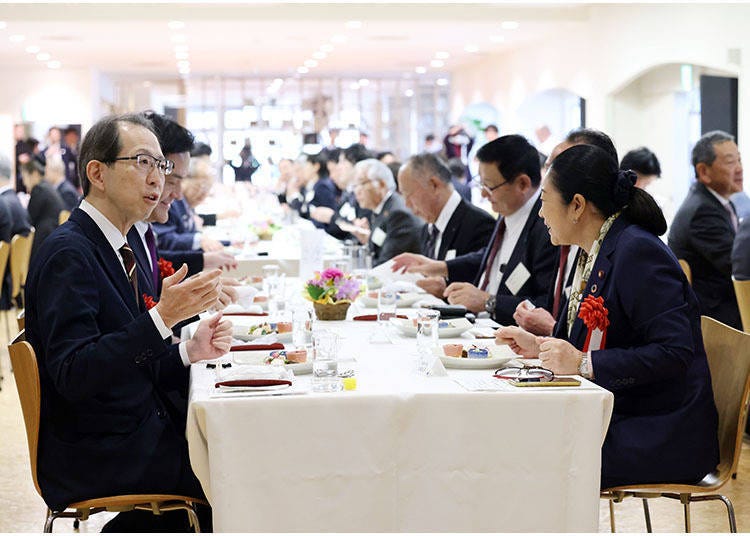
Studying in Fukushima in preparation, soaking in the skill and wisdom of a long-established restaurant
The owners of a long-standing restaurant in Kyoto belonging to the NPO Japanese Culinary Academy were key players in the development of the kaiseki course meal.
This NPO is committed to getting important Japanese cuisine registered by UNESCO as pieces of intangible cultural heritage, sharing Japan’s incredible food culture with the world, and providing guidance and instruction to chefs outside of Japan.
They joined forces with the Reconstruction Agency to extol the safety and appeal of foods from Fukushima through the "The project of linking up culinary cultures: in Fukushima."
In January, a group of chefs from the restaurant Tankuma Kitamise, including the owner Masahiro Kurisu, visited Soma City in Fukushima Prefecture. They discussed seafood with fishermen and asked for help from Fukushima chefs intimately familiar with local food culture and seasonal ingredients. Their combined efforts culminated in the kaiseki course meal.
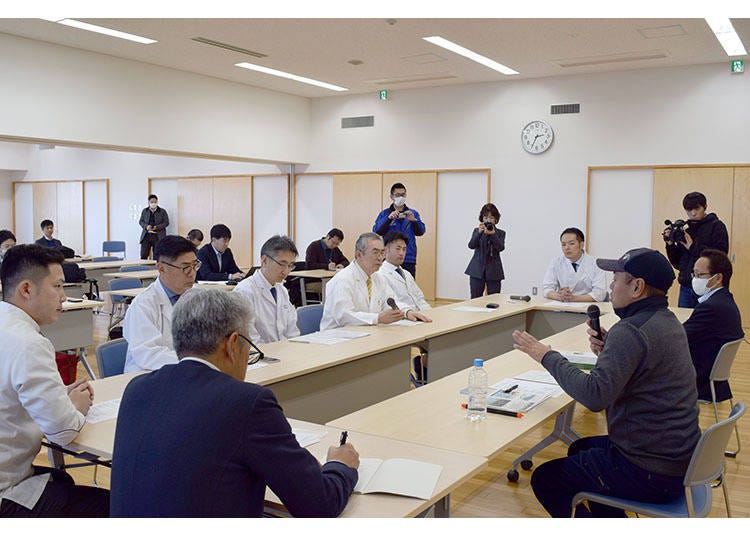
Shingo Sonobe, the vice chairman of the board at the Heihachi Jaya Japanese Restaurant & Inn, a location with 450 years of history in Kyoto, said, "Fukushima has a really wide variety of ingredients on offer, and I was excited to see what kind of dishes we could craft using them."
Preparing special bento boxes for sale with high expectations for the tiger fugu (pufferfish): "Eat and breathe new life into Fukushima"
It was also an opportunity for Fukushima chefs and members of the food production industry to rediscover the potential of local ingredients.
On the day of the event, a total of 20 chefs from Kyoto, Tokyo, Nagoya, Ibaraki, Gifu, and Miyagi, as well as local chefs, all worked together.
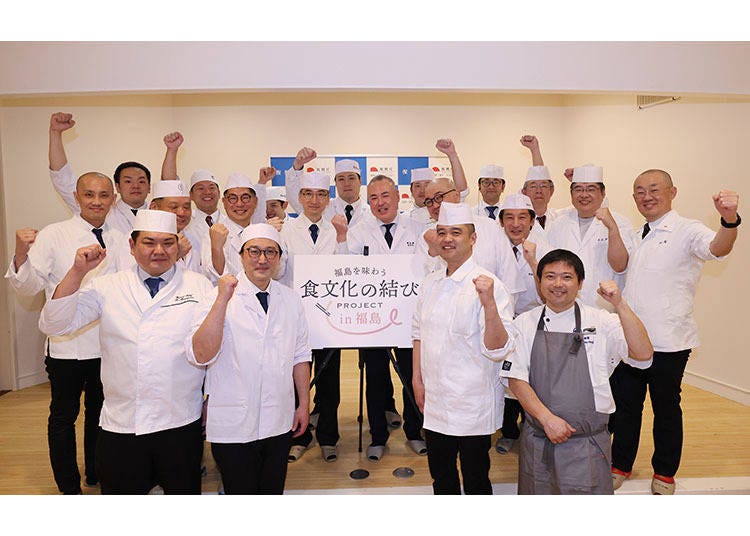
Kenji Maruyama, the head chef of HOTEL HANANOYU in Koriyama City in Fukushima Prefecture, oversaw the selection and procurement of ingredients. He was inspired by the experience, saying, "We were able to bring out hidden charms that even local chefs don't know about."
The hotel where he works is even considering offering an overnight stay plan where guests can enjoy this kaiseki course meal.
In addition, the promotion of Fukutora tiger fugu (pufferfish) takes advantage of the rapidly increasing catch off the coast of Fukushima Prefecture in recent years. Expectations are high for this fish to bring positive attention to Soma City and the surrounding area.
Masahiro Ishibashi, a fisherman from Soma City said, "I was impressed by this new way of preparing Fukutora. I think this will explode in popularity across the country."
The Japanese Culinary Academy will also collaborate with chefs in Fukushima Prefecture to develop and release a special bento box based on this kaiseki course meal. They hope to get the bento boxes onto store shelves, and people visiting Fukushima may soon be able to enjoy them.
At present, all Fukushima produce available on the market is safe and has passed inspections based on the world's strictest standards for testing radioactivity. At the end of the event, Kenji Ioki, the owner of Banshokan, a participating restaurant from Gifu City, spoke on behalf of all the chefs involved in the project: "Fukushima's produce is safe and secure. We hope people all over the country to enjoy it, spread the word about it, and help breathe new life into Fukushima."

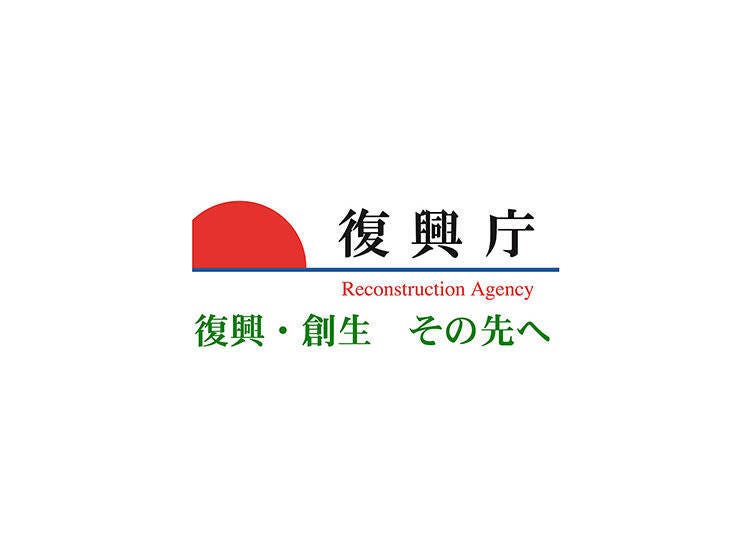
*Prices and options mentioned are subject to change.
*Unless stated otherwise, all prices include tax.
Popular Tours & Activitiess
-
Ad

Explore Samurai City Aizu-Wakamatsu: Your Full Guide to History, Nature, and Culture
-

Aomori's Quiet Side in Autumn: 5 Scenic Spots in Hachinohe According to a Local
by: Marco Blasco
-

8 Luxury Tohoku Ryokans: Private Onsen, Gourmet Wagyu, and Winter Views
by: Sae Haneda
-

Niigata Sake no Jin 2026: Guide to Japan's Most Legendary Sake Weekend
-
Ad

Why Fukushima is the Next Big Food Destination in Japan The Foodie Paradise Only 90 Minutes from Tokyo
-

Shopping in Niigata: 9 Must-Buy Souvenirs & Local Sake to Take Home
by: ShiroKu inc.
-

Aizu-Wakamatsu Sake Crawl: Enjoy the Heart of Fukushima's Sake Culture
-

(Video) Walking Tour along Narita Omotesando - Quaint Historical Village near Narita Airport!
by: Victor Gonzalez
-

Conveniently Located! 10 Best Hotels to Book in Aomori For Every Traveler
by: Guest Contributor
-

Must-Try! Creative Konjac Desserts from Japan's Yamagata Prefecture
-

3 Yamagata Onsen Ryokan: Enjoy Autumn Colors While Peacefully Soaking in Hot Springs
-

Complete Guide to Buying Japanese Medicine in Japan: Phrases and Vocabulary You Need to Know












